Increased funding expected for space research
Updated: 2016-03-18 08:07
By Cheng Yingqi(China Daily)
|
||||||||
Scientists estimate that the government will invest no less than 5.9 billion yuan ($910 million) on space science research during the period of the 13th Five-Year Plan (2016-20), according to a research report published on Thursday.
The report was composed by a group of scientists from the Chinese Academy of Sciences, who surveyed the research interests of hundreds of scientists in China since 2012 and sorted them into 23 major space science programs with the brightest scientific prospects.
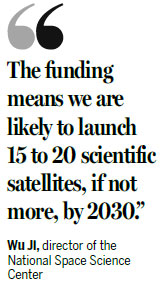
"Decision-making on the country's major space science projects should not be based only on the individual opinions of government officials, or the proposal of a few prestigious scientists. We should carry out comprehensive research on our own space science capacity and on topics at the frontier of international science, so that the decision-makers can avoid spending State funding blindly," said Wu Ji, director of the National Space Science Center at the Chinese Academy of Sciences, and chief editor of the research report.
Scientists estimate that the country's overall research and development funding will maintain 2.5 percent annual growth between 2016 and 2030.
"We hope that the pace of development of space science will not lag behind other research fields, which means that the funding for scientific satellites will be no less than 5.9 billion yuan in the coming five years," he said.
"The funding means we are likely to launch 15 to 20 scientific satellites, if not more, by 2030," Wu said.
In 2011, China initiated the Strategic Priority Program on Space Science, the country's first project that includes a series of satellites planned purely for scientific research in space but not for economic benefit.
The first satellite of the series, the dark-matter satellite DAMPE, was sent up on Dec 17. After months of in-orbit testing, scientists announced the success of the testing stage on Thursday.
Chang Jin, DAMPE chief scientist, said the satellite will spend two years taking general sky surveys and the third year scanning key spots.
chengyingqi@chinadaily.com.cn
- Pentagon chief says Europe needs to accelerate anti-IS efforts
- Jeb Bush endorses Cruz's election bid
- Chinese passenger may sue Virgin Atlantic
- People pay condolence to victims of Brussels attacks
- Police issue wanted notice for suspect after Brussels attacks
- China eyes cooperation plan for Lancang-Mekong countries
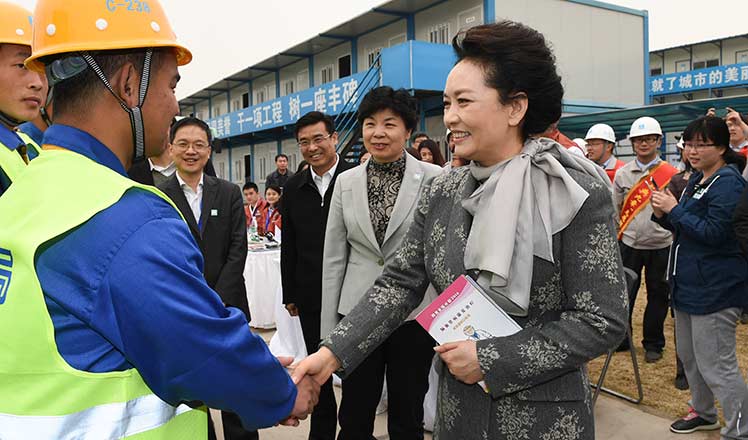
 First lady Peng Liyuan leads fight against tuberculosis
First lady Peng Liyuan leads fight against tuberculosis
 Faces at Boao Forum for Asia Annual Conference
Faces at Boao Forum for Asia Annual Conference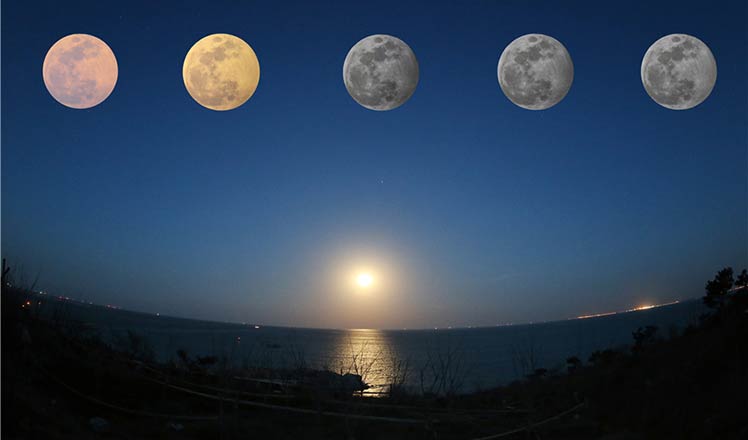
 In photos: Lunar eclipses visible in eastern China
In photos: Lunar eclipses visible in eastern China
 Chinese chasing Spring blossoms around the country
Chinese chasing Spring blossoms around the country
 Migrant couple returns to hometown to raise chickens
Migrant couple returns to hometown to raise chickens
 Victims of Brussels attacks commemorated
Victims of Brussels attacks commemorated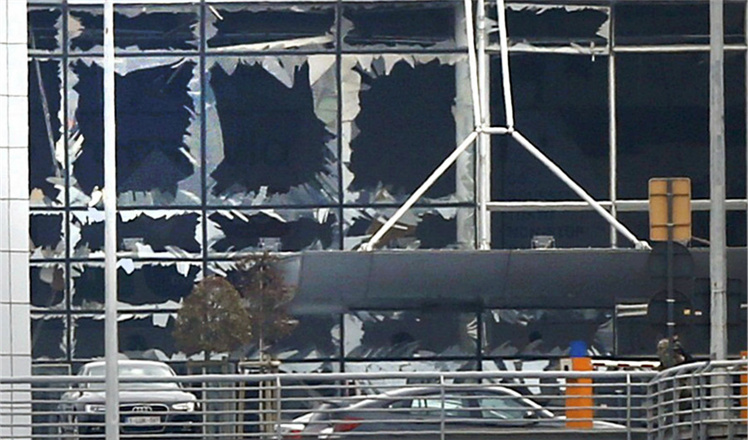
 In photos: Brussels rocked by multiple explosions
In photos: Brussels rocked by multiple explosions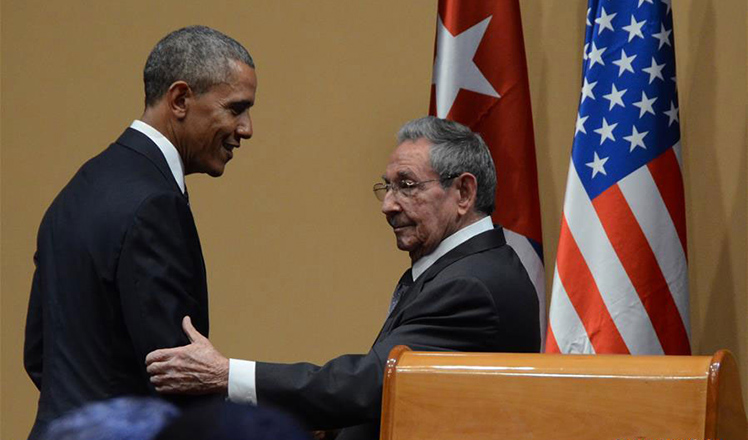
 Raul Castro and Obama hold talks in Havana
Raul Castro and Obama hold talks in Havana
Most Viewed
Editor's Picks

|

|

|

|

|

|
Today's Top News
Marriott unlikely to top Anbang offer for Starwood: Observers
Chinese biopharma debuts on Nasdaq
What ends Jeb Bush's White House hopes
Investigation for Nicolas's campaign
Will US-ASEAN meeting be good for region?
Accentuate the positive in Sino-US relations
Dangerous games on peninsula will have no winner
National Art Museum showing 400 puppets in new exhibition
US Weekly

|

|







